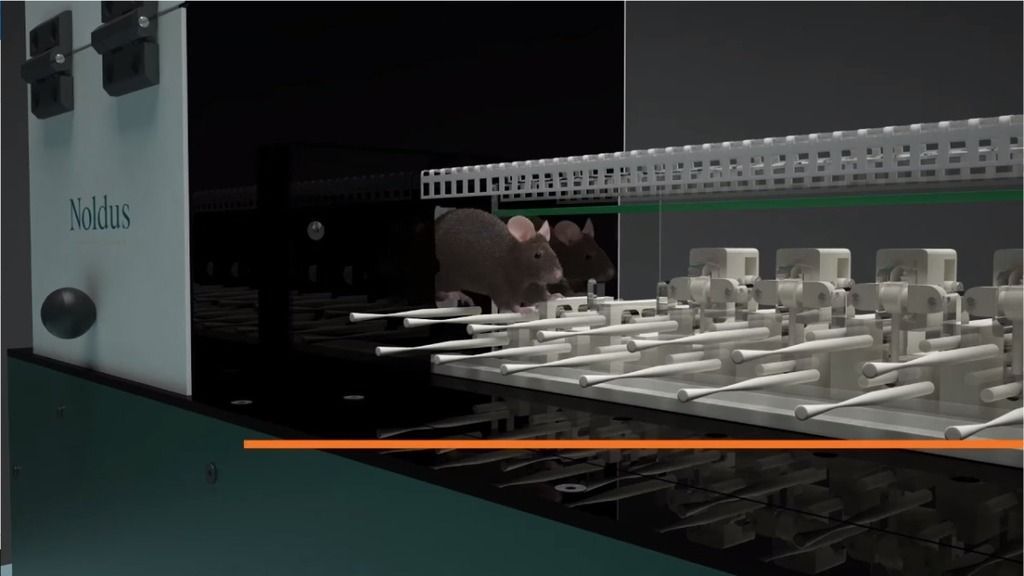Alzheimer's research - From prevention research to natural treatment
Experts estimate that by 2050, 100 million people will have Alzheimer’s disease (AD), which is a shockingly large number. Learn more about the research that has been done in order to find a cure.
Posted by
Published on
Fri 15 Feb. 2019
Topics
| Alzheimer's Disease | EthoVision XT | Morris Water Maze | Video Recording |

Experts estimate that by 2050, 100 million people will have Alzheimer’s disease (AD), which is a shockingly large number. Although a lot of research has been done, researchers still haven’t been able to find a cure.
Our Behavioral Research Blog regularly highlights Alzheimer’s research. Check out these four blog posts!Alzheimer’s hallmarks and symptoms
Those of you familiar with Alzheimer’s research know about the plaques and tangles. The beta amyloid plaques between neurons and tangles of tau protein within the cells are hallmarks of the disease. However, a longitudinal early onset Alzheimer study in Columbia (1) showed that clinical symptoms appeared as early as age 40, before plaques were identified in the brain.
Researchers also tested a transgenic mouse model of Alzheimer’s disease. To investigate their symptoms, they did motor performance and learning tests using ErasmusLadder. Again, symptoms became evident before the presence of plaques in mouse brains. Researchers are now working on ways to prevent or slow down the disease at early stages, instead of trying to cure or treat it later on. Read more about this study.
Natural treatments for Alzheimer’s
So, there is no cure yet, but many possible treatment and therapies are tested. One of them is not medication per se, but rather a supplement: Ginkgo biloba. This dietary supplement is supposed to enhance cognitive function.
The plaques we talked about earlier, which are the hallmark of Alzheimer’s disease, actually cause inflammation. This damages the neurons, which in turn leads to dementia or cognitive impairment.
After noticing different positive effects of Ginkgo biloba on AD-patients in preclinical and clinical studies, researchers (2) decided to focus more on the molecular level. Using a transgenic mouse model, researchers gave the supplement and varied the period of supplement treatment. The mice were then tested for how good their memory was using a Barnes maze task. It turned out that AD-mice receiving Ginkgo biloba actually did have better memory, but only if they had been taking the supplement for a long period of time. Read about the study here.
Sporadic Alzheimer’s
By now, if we hear “Alzheimer’s disease,” we automatically think about plaques and tangles, at least in the scientific research context. However, that is not entirely correct. These hallmarks are linked to familial Alzheimer’s disease. This type of Alzheimer’s disease is actually a far less common type of AD than sporadic Alzheimer’s disease.
Sporadic AD is far more common, and typically late-onset, meaning that most patients are over 70 years old. There is also a lack of transgenic rodent models.
In sporadic AD, episodic memory is one of the first things to decline. Olfactory deficits may arise even prior to this, a fact that opens up opportunities for future early detection. As a result, researchers (3) looked at olfactory memory and developed a new mouse model.
They tested these mice with olfactory habituation tests.
They also tested these mice on spatial memory with a Morris water maze test, and investigated depression and anxiety-like symptoms as well as their circadian rhythm. The preliminary results indicated this new murine model to be suitable for this far more common type of Alzheimer’s disease. Read more about this study in this blog post.
Morris water maze testing and Alzheimer’s research
Behavioral research on rodent models for Alzheimer’s disease has a focus on cognition. One the most used tests for cognition in rodents is the water maze. In a nutshell, during a water maze test the rat or mouse learns the location of the platform by using cues in the environment. Normally, subjects decrease their searching time over multiple trials, indicating healthy cognition.
To investigate cognition, variables like escape latency, correct quadrant, swim path, and velocity are important and are easily measured with video tracking software. Read more about this in this blog post.
You might also be interested in our previous roundup of Alzheimer’s disease studies!
References
- Sepulveda-Falla, D.; Barrera-Ocampo, A.; Hagel, C.; Korwitz, A.; Vinueza-Veloz, M.F.; Zhou, K.; Schonewille, M.; Zhou, H.; Velazquez-Perez, L.; Rodriguez-Labrada, R.; Villegas, A.; Ferrer, I.; Lopera, F.; Langer, T.; De Zeeuw, C.I.; Glatzel, M. (2014). Familial Alzheimer's disease-associated presenilin-1 alter cerebellar activity and calcium homeostasis. The Journal of Clinical Investigation, 124(4), 1552-1567.
- Liu, X.; Hao, W.; Qin, Y.; Decker, Y.; Wang, X.; Burkart, M.; Schötz, K.; Menger, M.D.; Fassbender, K.; Liu, Y. (2015). Long-term treatment with Ginkgo biloba extract EGb761 improves symptoms and pathology in a transgenic mouse model of Alzheimer’s disease. Brain, Behavior, and Immunity, doi: 10.1016/j.bbi.2015.01.011.
- Coronas-Samano, G.; Baker, K.L.; Tan, W.T.J.; Ivanova, A.V.; Verhagen, J.V. (2016). Fus1 KO mouse as a model of oxidative stress-mediated sporadic Alzheimer’s disease: circadian disruption and long-term spatial and olfactory memory impairments. Frontiers in Aging Neuroscience, 8, 268.
Related Posts

Part 2: How researchers use the Morris water maze to find treatments for AD

Drunken mice get aggressive on Alzheimer’s drugs


